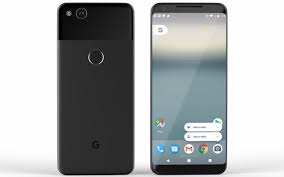Google is good at building best phones in the world but terrible at selling them

With the recent acquisition of one of HTC's
smartphone teams, Google appears more committed than ever to being hardware
maker of the best phones in the world. The company still has a long way to go
to reach a substantial customer base, though. The research director for
IDC, Francisco Jeronimo, shared
some interesting smartphone shipment numbers from the IDC's quarterly industry report.
The IDC says Google shipped only 3.9 million Google Pixel
phones in 2017. That's good, in that it is double the previous year's
shipments. On the other hand, the IDC says Apple shipped 215.8
million iPhones in 2017, which works out to 4.15 million a week. So, Apple
ships more phones in a week than Google does in a year.
Google's jump into the hardware arena with self-branded
phones began with the first Google Pixel phone at the end of 2016, and the
company still has a ton of work to do. Google has proven it is good at the
"phone building" part of being in the smartphone business—the Pixel 2 and 2
XL are easily the best phones in the world you can buy. Google
hasn't made a lot of progress in the "sales and support" part of the
smartphone business, however.
For starters, Google only sells Google Pixel phones in six to eight
countries, depending on the model, so Google is not the slightest
bit competitive in the worldwide market. Something like the iPhone X is
available in 70 countries. Of
course with a wider customer base you'll sell more phones.
Apple also has a retail empire, with 499 stores across 22
countries. The stores give Apple an army of salespeople pushing iPhones in
premiere retail locations, along with a support system that can't be matched by
any other smartphone provider—if you have a problem, just go to an Apple Store.
Google occasionally dabbles with pop-up stores for
the holidays, and it has some dedicated displays inside electronics stores, but
it's missing a standalone
retail presence. Google's support system is also lacking, as support
is all done online. Apple also has deals with all the major carriers in the US,
putting iPhones in even more retail locations with even more salespeople. By
contrast, Verizon is the only carrier selling Google phones in-store.
Even with those relatively paltry sales numbers, Google also
dealt with a lot of Pixel stock issues in 2017. Even five months after
the launch of the Google Pixel 1 at the end of 2016, the company couldn't keep
the phone in stock on the Google Store. Google Hardware SVP Rick Osterloh
referenced the Pixel's constant stock issues at the Pixel 2 launch, saying,
"I just wish we had a few more of them to go around."
On one hand, selling basically every Pixel phone you make is
a good thing, but Google probably would have sold a lot more if it had met the
demand. Google seems to have improved its supply line issues with the Pixel 2,
which has consistently been in stock.
We're using Apple as an example not just because the two
companies are frequent rivals, but also because Apple offers the closest
product lineup to Google, with only a handful of high-end models. Samsung, with
a wider range of price points, is the smartphone sales leader with 317.3
million phones shipped in 2017, according to IDC. Lower-end phones lead to more
sales, and Samsung matches yearly Pixel shipments every 3.5 days.
One thing not many people will realize is that Google's
smartphone pricing is even more high-end than Apple's, though. Google's
cheapest phone is last year's Pixel 1, which got a $100 price drop when the
Pixel 2 came out and is technically for sale for $549 (although it's still sold
out). Apple, meanwhile, starts its smartphone line with the $349 iPhone SE.
People are much more willing to buy a cheaper product, and Google's nascent
hardware brand might have a harder time convincing people to pay top-dollar.
Solving the stock issues with the Pixel 2 this year is a big
improvement, but if Google really wants to compete in sales numbers, it has
many more problems to solve. More countries, a better retail presence, and more
carrier deals would be a good start. A phone that pushes into the value pricing
market would be a big help, too.



![A Complete Carding Tutorial for Beginners [UPDATED 2022]](https://blogger.googleusercontent.com/img/b/R29vZ2xl/AVvXsEjcH-OCpw-ex3eeIUwcvwnyaKoq7NyFMExNBceP3KnGkR1Xp-4-je0a3_7bD03_VJB5yOzkguguWRJc0voCNh5_117sgs7SEuYMGfZR-VX6YpJuIlMXnphoThf20rVXYnTltfCHkBdqm7ql/s72-c/Black+and+Yellow+Photo+Food+YouTube+Thumbnail.png)




No comments: